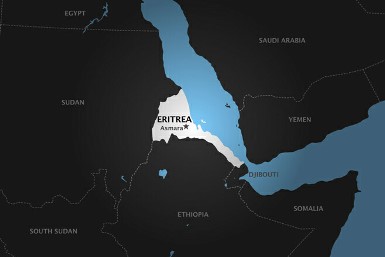UN Security Council extends arms embargo on Eritrea
October 12, 2016 (ADDIS ABABA) – The United Nations Security Council (UNSC) this week extended the arms embargo on Eritrea.

On Thursday, ten UN Security Council member states voted for the resolution while five others (Angola, China, Egypt, Russian Federation, and Venezuela) abstained.
The Security Council also extended the mandate of the UN Somalia-Eritrea Minoring Group (SEMG) until December 15, 2017.
It urged the government of Eritrea to facilitate the UN monitoring group’s entry into that country.
The Council further urged the government of Eritrea to allow access or provide information, including to the monitoring group, on the Djiboutian prisoners missing in action since clashes between the two countries between 10 and 12 June 2008.
It stressed that Eritrea’s “non-cooperation was not the path to getting the sanctions lifted.”
UN Somalia-Eritrea Minoring Group (SEMG) has not found evidence that Eritrea supported the Somali insurgent group, Al-Shabab. The red sea nation refuse entry of UN monitoring group.
A U.S. representative said that, “ It was difficult to corroborate because the monitoring group had not been allowed into the country.”
The Security Council expressed “concern over reports by the SEMG of ongoing Eritrean support for certain regional armed groups, and encouraging the SEMG to provide further detailed reporting and evidence on this issue.”
Eritrea had long been demanding to have the sanctions lifted.
A number of countries had been lobbying but didn’t yet succeed.
Following the vote, a number of countries expressed their support for the resolution, which targeted causes of instability in the Horn of Africa.
The United Kingdom’s representative said the renewal of the sanctions regime would cut off Al-Shabaab’s funding and protect Somalia’s natural resources.
Regarding Eritrea, the diplomat said “We don’t welcome the progress because nothing has changed,” while emphasizing that the lack of cooperation on the part of the country’s authorities had “tied the international community’s hands”.
Djibouti’s representative said it was regrettable that, although Eritrea’s release of prisoners in March had raised hope, its past practices continued. Djibouti supported extending the sanctions regime, he added.
(ST)
